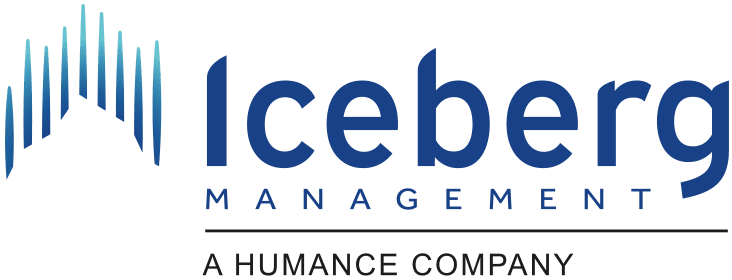
News & Editorials
September 20, 2022
Mobilizing hybrid and remote teams: a far from impossible challenge
Today, the dominant model of office-based work is being turned on its head. Many options are now on the table: full-time telecommuting, a free choice policy, a requirement to return to the office based on the nature of the work or a fixed number of days. Teams must adapt and continue to be effective in a context where workers’ needs and expectations have never been more… fragmented.
In this context, how can teams be mobilized and engaged? How can we make teams more independent, autonomous and responsible? There are differences between face-to-face and remote team management, and leadership practices must adapt. But mobilizing hybrid and remote teams is far from impossible.
It is time to rethink optimal team management and to analyze the issues and priorities of managers who wish to stimulate or maintain team cohesion. By putting in place practices that will help the team converge towards a common goal, managers will have a direct influence on results.
Plan
First of all, you have to be knowledgeable. Can you name by heart the benefits of telecommuting or hybrid work for employees and the employer? Can you identify the criteria for successful implementation, and assess whether your company has met them? Do you know what the satisfaction indicators are for telecommuting employees and managers?
When you don’t know, you are forced to improvise. And so the degree of engagement becomes arbitrary, rather than the result of concerted effort.
When we set a goal, we need to know the evidence that will allow us to measure that we have reached our goal. What will be the tangible and intangible evidence that your teams are more mobilized? Make a list and start measuring the current state. Then estimate what the desired state would be, and measure the gap you need to close.
To lead a team well, whether face-to-face, hybrid or remote, you also need to know the characteristics of your environment that shape the current state. As my associate Médina Cayer, MBA, Adm.A., C.M.C., CHRP, CCA expressed it in the Guide d’accompagnement pour une transition vers le travail hybride produced by the Ordre des CRHA, “the manager must have a global view, rise above the field to have a metavision of the resources, of the collaborative links and then make the right choices. It is from this position that he or she can then determine the degree of autonomy of his or her resources.
Lead
Once the data has been collected, work teams must be organized and the activities of the departments must be directed. Leadership must be adapted to the level of autonomy, responsibility and accountability of the teams. More senior people who are used to telecommuting do not have the same leadership needs as more junior people who are just starting out in a position or even in their career. Poorly adapted leadership could be demotivating for resources, either through excess or lack of follow-through. Knowing this, what changes have you made in your hybrid team management mechanisms? Have you implemented results-based management, which usually provides simultaneous and intrinsic feedback to employees? Have you reduced the number of team meetings, replacing them with quicker status meetings? Or have you increased team meetings, to stimulate collaborative work and collective intelligence?
Individual preferences also come into play: some employees prefer to receive a lot of feedback, and need more validation. While meetings are perceived as boring for some people. They prefer to receive feedback in the margins of a document or recognition in a chat room.
It is not possible to please everyone with rigid leadership. Situational leadership is more agile to the various situations that hybrid work brings. And it is very engaging. The manager takes the employee from where he or she is at and accompanies him or her in their development. If they need to learn, the manager adopts a transformational style; if they are very autonomous, a delegative style. Such situational leadership can lead resources to be so autonomous that the manager can decentralize decision making.
Mobilize
The mobilization of hybrid teams is very similar to the mobilization of face-to-face teams. The search for common goals, key success indicators and the exercise of agile leadership are adaptations to the hybrid model. But a return to the roots of mobilization is also in order. Whether your teams are remote or in the workplace, is your culture alive and well and conveyed by your mission-vision-values trio? It’s not enough to see them written on the wall. Your interview questions and performance appraisal criteria must assess the demonstration of values in behaviors. Tasks should be aligned with your mission and your vision should be frequently named in your decision making meetings. Is this the case?
Par Julie Tardif, CRHA
Conférencière et Formatrice agréée, Cofondatrice et Associée chez Iceberg Management

Julie Tardif, CPHR
Chief Commercial Officer, Co‑Founder & Partner
Speaker & Certified Trainer
Human Resources Consultant
Advice Centre
Discover more inspiring content
Find out how our methodology has transformed companies from different sectors. Each article is proof of our expertise.

Employee Coaching & Training
5 themes on which your managers would benefit from being coached
5 recurring themes on which I work with my clients and on which your managers would benefit from being coached.

Recruitment & Employer Brand
What is your HR employer brand identity?
Job offers are increasing, but candidates are more selective. It is important to strengthen the employer brand to attract the best talent.

Employee Coaching & Training
Expatriation and support for your managers
Ensuring expatriation with the support of your managers by a professional coach can be the lifeline that the manager did not dare ask for.

Employee Coaching & Training, News & Editorials
5 reasons to invest in a professional coach for your managers
The 5 concepts that your managers should know in order to perform in their role and reasons to invest in a professional coach

News & Editorials
The title of Adm.A., definition and reason for being.
We will explain to you what the definition of the Adm.A title is and its reason for being. But also, how this title imposes rigor and professionalism.

Culture and Health Wellness
Stay interviews, new trend or proven practice?
One way to retain your resources is to enrich the opportunities to communicate effectively with your employees. A new trend: the retention interview?

News & Editorials, Recruitment & Employer Brand
Unlimited Vacation: How is it possible?
Unlimited vacation meets employees' need for autonomy and work-life balance to promote retention.

Employee Coaching & Training
Are you familiar with the CQIF?
CQIF Summary: The Certificate of Quality of Training Initiatives exempts employers from administrative tasks, improves training, and promotes workforce development.

Employee Coaching & Training
The different hats of the HR professional
Pour être un professionnel RH polyvalent, il est essentiel de savoir quand et comment changer de posture pour accompagner les employés.

Organizational Structure
Diagnosis: enriching your strategic planning
Spring brings new fiscal year for entrepreneurs. Iceberg Management is ready for new challenges and to update strategic planning through organizational development.

News & Editorials
The institutional memory of an organization
The article explains the importance of an organization's institutional memory in preserving collective knowledge.

Organizational Structure
Professional tips to manage absences
Valuable tips on absence management include updating the employee handbook, applying rules consistently, and seeking professional advice.
